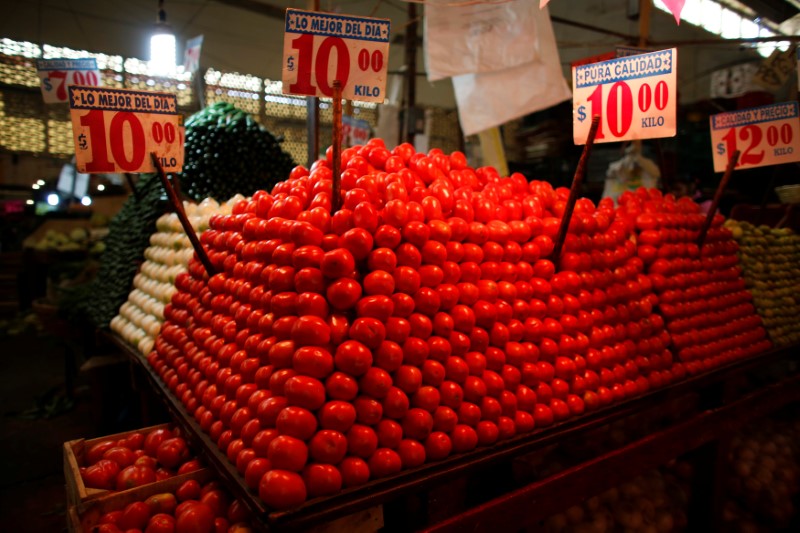MEXICO CITY (Reuters) - Mexico's annual inflation picked up slightly in December to the fastest pace in two years, data showed on Monday, boosting chances the central bank will raise interest rates again to offset a weaker peso.
Consumer prices <MXCPIA=ECI> rose 3.36 percent from December 2015, national statistics agency INEGI said on Monday, the highest rate since December 2014, and topping the central bank's 3 percent target.
The figure was below the 3.40 percent analysts forecast in a Reuters poll and up from the 3.31 percent reached in November.
Consumer prices could be fanned further by a double-digit hike in gasoline prices announced by the government that went into effect this month. The increase has spurred protests, looting and blockades throughout the country.
Last month, Mexico's central bank raised interest rates for the fifth time in 2016, to 5.75 percent, taking borrowing costs to the highest level since April 2009.
In minutes of the central bank meeting, board members said they would remain attentive to potential pass-through from the exchange rate to inflation, after Donald Trump's U.S. presidential election win sent the peso to new lows [L1N1EO0NV].
Mexico's central bank sold dollars last week to shore up the peso in its first such intervention since February 2016 but Capital Economics said in a client note that interest rates will have to rise further to contain consumer prices.
A poll released by Citibanamex last week showed analysts expect an increase of 50 basis points at Banco de Mexico's February meeting.
Consumer prices <MXINFL=ECI> rose 0.46 percent on the month in December, according to non-seasonally adjusted figures, boosted by an increase in tourist services, airfares and eggs.

The core index, which strips out some volatile food and energy prices, rose 0.45 percent during the month <MXCPIX=ECI>.